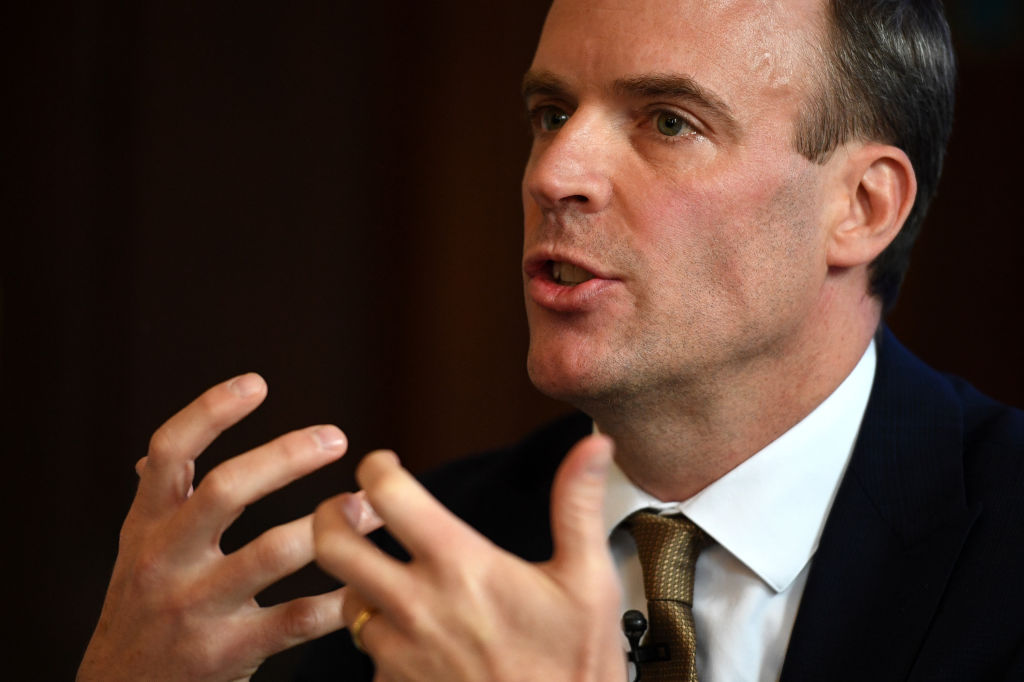Dominic Raab’s launch was just downstairs from the event that Matt Hancock held, and rather more serious, too. He was able to underline his parliamentary support, filling the front row of his audience with MPs who cheered loudly at appropriate moments. He was introduced by Maria Miller, who joked that she hoped to persuade him to become a feminist and claimed that both had come from relatively humble backgrounds. Raab’s campaign team had clearly decided that it was best to be brazen about something that is considered by some as a weakness.
The candidate’s pitch was as someone who is sufficiently brazen to achieve the kind of Brexit he and the Conservative party want, and then make Britain fairer for ordinary people. He pointed to complaints from Michel Barnier and Guy Verhofstadt that he ‘pushed them too hard’ and had ‘told them things no one else had dared to’. He took a shot at Boris Johnson, saying: ‘We’re up against it, and we won’t get Brexit delivered with bluff and blister. I’m the conviction Brexiteer with the plan, the discipline and the focus to lead us out by the end of October.’
It wasn’t just on Brexit where Raab tried to imply that he would do a better job than Boris Johnson. Asked to outline what he had that the former Foreign Secretary didn’t, Raab said he wouldn’t allow the Conservative party to revert to the stereotype of standing for a privileged few. He also argued that he would get his tax plans through the Commons because they were aimed at the low-income workers who Labour tried to champion, whereas other candidates would struggle with plans that ‘will be characterised as protecting privilege’.
Raab wasn’t trying to appeal to a wide range of Conservative MPs. His speech won’t have warmed the hearts of many One Nation Tories, not least because it included some of the stock phrases of the more right-wing, economically dry Conservatives such as ‘buccaneering’. But his speech had clarity and confidence designed to appeal to MPs wavering between him and Boris Johnson. For Raab, this contest is about persuading MPs and members that they need to back someone who has a clear plan, rather than a candidate who knows how to energise others.







Comments